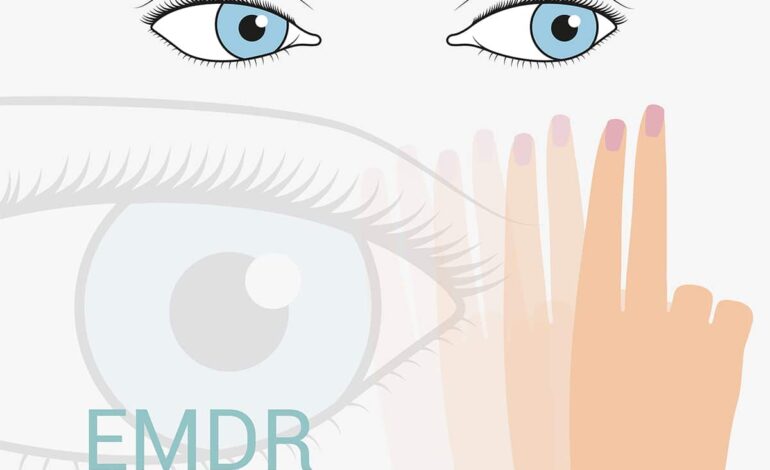“I have been here before. I know there is another side. And the other side is more significant than my PPD-riddled-temporarily-adjusted-brain could have ever imagined: as a mum. As an artist. As a friend. As a collaborator. As a leader. As a boss. As an activist.” -Alanis Morissette
As we approach Mother’s Day and continue to follow the headlines in the news about abortion laws and women’s rights, it is essential to highlight World Maternal Mental Health Day and World Mental Health Month. World Maternal Mental Health Day is an awareness day that helps raise awareness about mental health issues specific to mothers in hopes that more women will get the treatment they need and in hopes that fewer women (and children) will continue to suffer.
The Reality of Being a Mom
Being a mother is one of the most significant challenges in life. Pregnancy, giving birth, raising kids, balancing, or having to quit work, taking care of a household, and dealing with many mental and physical health issues specific to pregnancy is overwhelming. Yet, because mothers are so giving, they often forget to care for their own mental, emotional, and physical well-being.
A small group of people met in late 2015 to start making plans for the first-ever World Maternal Mental Health Day. The group decided that the event should be held each year on the first Wednesday of May, close to “Mother’s Day” and “Mental Health Week” in many countries.
New mothers are often under a lot of pressure and are stigmatized based on their decisions, decisions that begin when a female first finds out she is pregnant. Topics such as abortion, adoption, vaginal birth vs. cesarean, and breastfeeding are just some of the decisions that many mothers must think about when they are pregnant. Other topics such as childcare, finances, social support, postpartum depression, and maternal mental health are often put on the back burner until after the baby arrives. As a society, it is apparent that we need to give women more choices, more support, less stigma, and more education about every aspect that encompasses maternal mental health.
Studies have shown that mental health disorders such as anxiety and depression impact 15-20 percent of women during pregnancy and the postpartum period. Researchers believe this number is even higher as many women do not report or talk about their symptoms due to the stigma attached to mental health and motherhood. In addition, the physical stress on the body from childbirth, fluctuating hormones in pregnancy, and the emotional and mental stress that comes with taking care of a newborn all contribute to the development of mental health disorders in new moms.
Women and Mental Health
Although postpartum depression is a mental health disorder solely diagnosed in women, depression, and anxiety are more common among women than men. It is not clear why mental health disorders are more common in women; however, it is known that discrimination and trauma are prevalent among females. Both play a role in the development of mental health disorders. Research has shown that half of the women have experienced trauma in their lives, and one in four women have experienced sexual assault. The challenges of gender discrimination and the mistreatment of women are critical components in a woman’s mental health.
Postpartum Depression
Postpartum depression is characterized by extensive periods of sadness, loneliness, fatigue, tearfulness, and recurrent thoughts of death. Moms will experience feelings of guilt, and all these symptoms interfere with the mom’s ability to care for herself and her baby. Many moms, especially first-time mothers, will blame themselves for having these feelings. After all, isn’t motherhood supposed to be blissful and magical? Unfortunately, our society has created this view that is not reality. Motherhood is complex and can be lonely, and moms who have postpartum depression are not at fault.
The majority of moms struggle with overwhelming feelings, but unfortunately, our society does not shed enough light on the struggles of early motherhood. As a result, moms who have postpartum depression may not realize they have a mental illness because of the stigma surrounding the signs and symptoms. If you are a mom, you must understand that postpartum depression is not your fault. You did not cause these symptoms.
Risk Factors for Postpartum Depression
- History of depression during pregnancy or before pregnancy
- First-degree relative with depression
- History of physical or sexual abuse
- Chronic stress associated with divorce, loss of a loved one, unemployment, or financial troubles.
- Unplanned/unwanted pregnancy
- Under 19 years of age
- History of diabetes before or during pregnancy
- Current use of tobacco, excessive alcohol, or illicit drugs
Negative thoughts about being a mom/having trouble adjusting to being a mom
Seeking help
https://www.akuamindbody.com/world-maternal-mental-health-month/
What we have known for some time is that the mental health needs of pregnant and new mothers are not being addressed adequately. Therefore, we must work with systems, organizations, and individuals who are providing care to mothers and families during pregnancy and the postpartum period so that perinatal mood and anxiety disorders are identified and addressed in a timely and culturally appropriate manner.
If you are a mom, whether you are currently pregnant, are taking care of a newborn, or have grown children, and are struggling with your mental health, it is important to reach out to a reputable mental health treatment center AKUA Mind and Body.
AKUA Mind and Body is a full-service addiction and mental health treatment center with multiple locations across California. We believe in treating the individual and not just the disorder and have a team of mental health experts who have experience in treating those who have mental health disorders or substance use disorders. No matter your range or severity of symptoms, our treatment staff works together to find the best-individualized treatment whether it’s through our residential program, our outpatient program or through our virtual program. We have something that can work around your busy schedule. Our team at AKUA Mind and Body wants to help you navigate through this challenging journey and seek out a healthy and successful recovery.
World Maternal Mental Health Month




